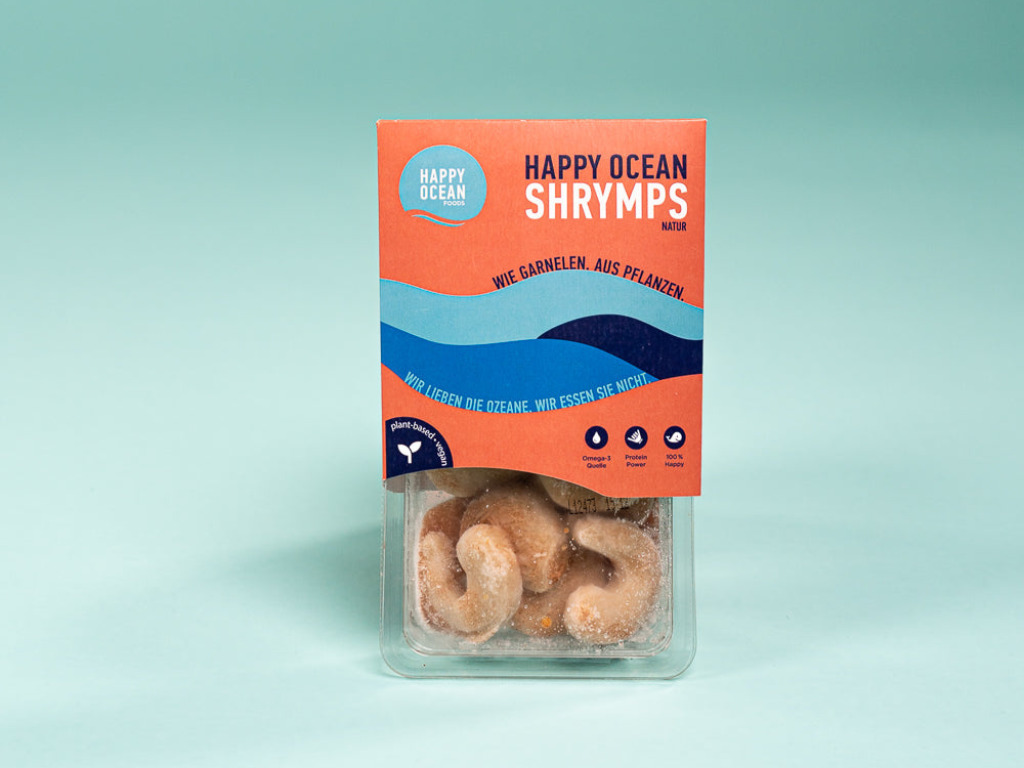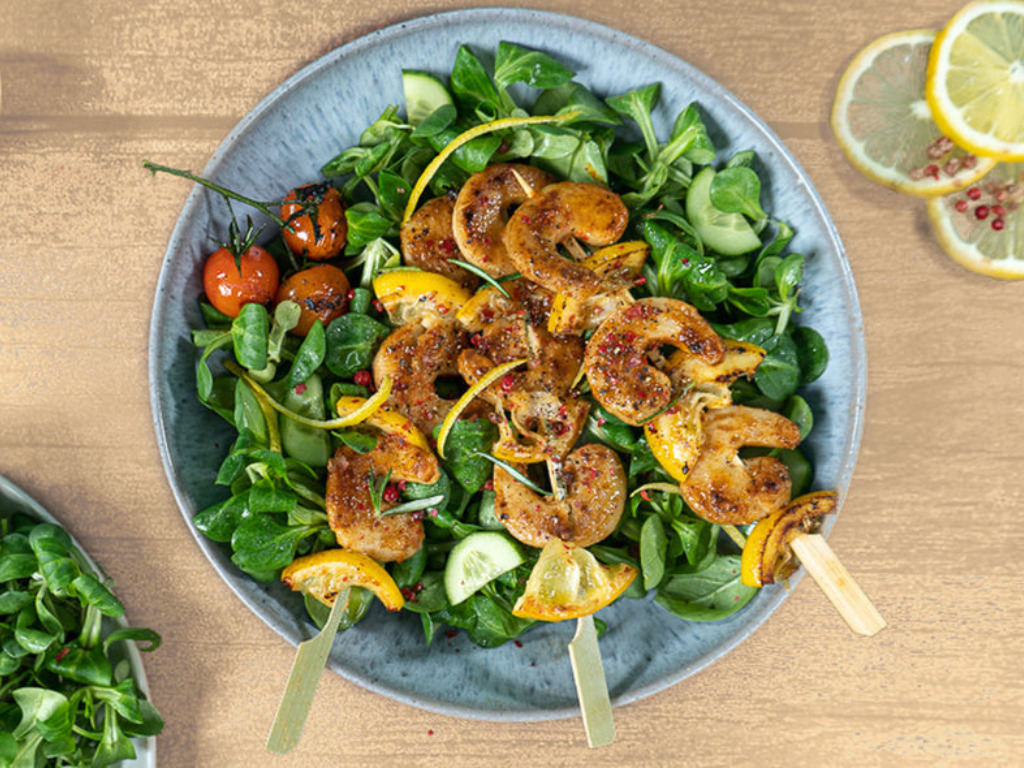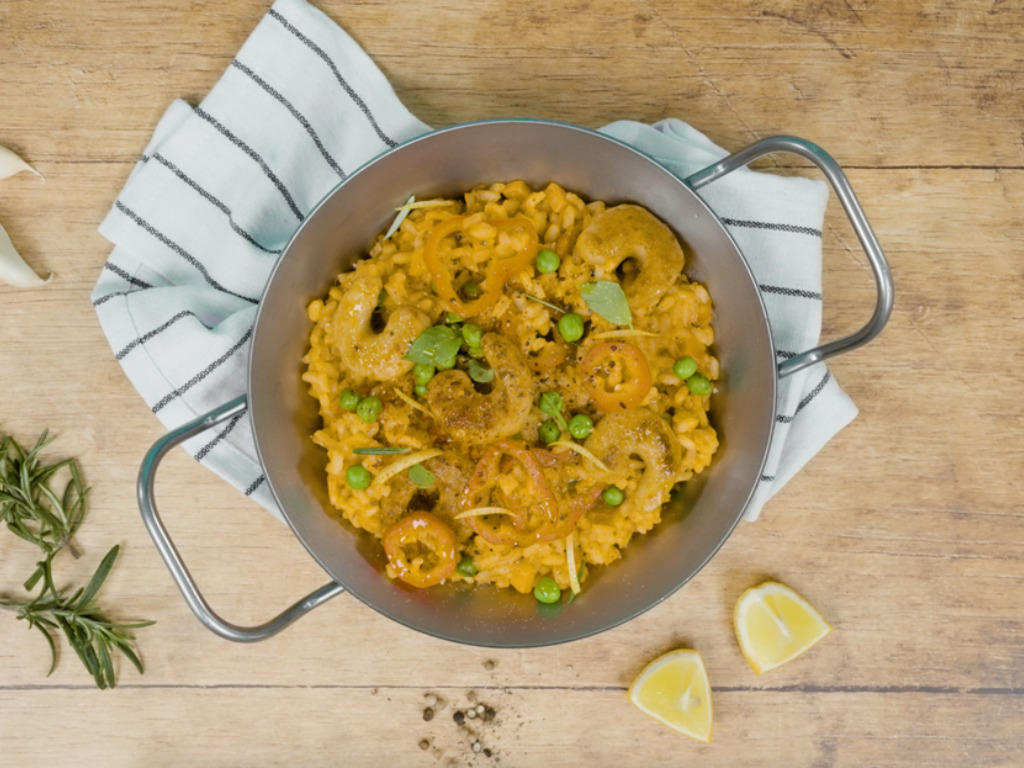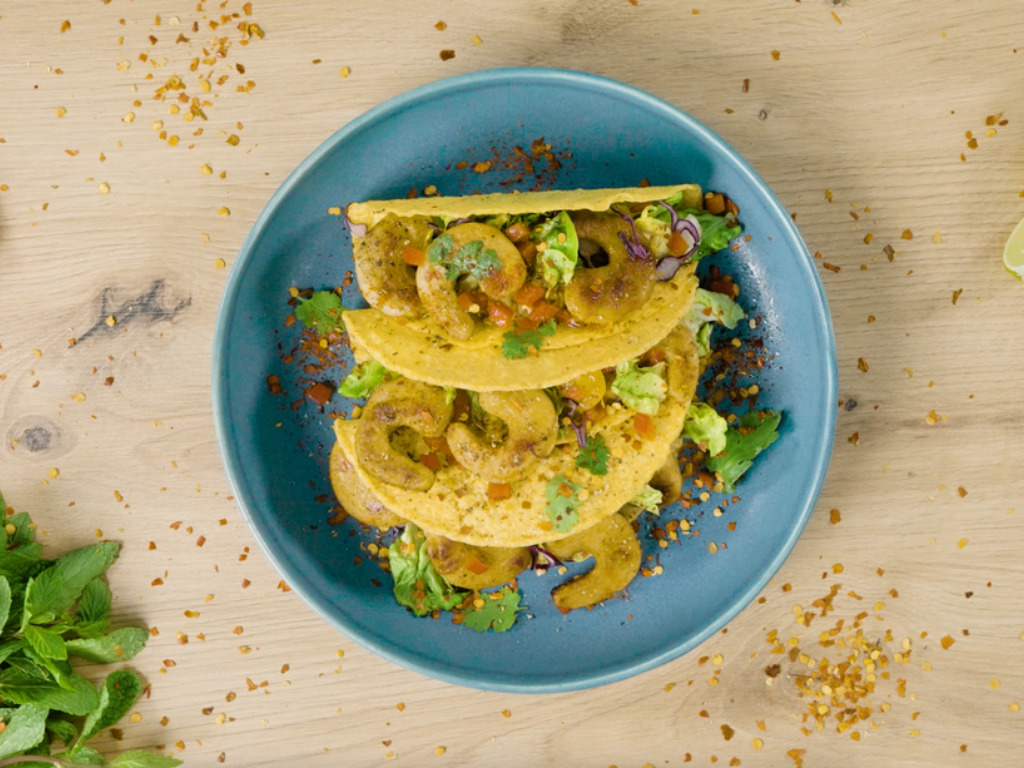3 Mins Read
Munich-based Happy Ocean Foods, which makes plant-based alternatives to shrimp, has secured two investors following an appearance on Lion’s Den. The programme is the German version of the U.S.’s Shark Tank and the U.K’s Dragon’s Den. The alt-seafood startup welcomed backing from former Formula 1 racing champion Nico Rosberg and Dagmar Wöhr.
As part of its presentation, Happy Ocean unveiled its signature ‘shrymps’. The food, which Happy Ocean calls “100 percent vegetable, with no comprises” is made from animal-free ingredients and shaped to mimic the real thing. The product does not aim to be ultra-realistic in aesthetics, but focuses on taste.

Turning the world’s oceans back to the animals
The German startup wants to take fish out of the food system, to inspire a healthier planet and better animal welfare.
“Good things follow good vibes. Each individual can make a difference. We give the oceans a voice. And that makes waves. For healthy oceans. For a healthy planet,” co-founders Robin Drummond and Julian Hallet state.
The company has concluded two fundraising rounds since its inception in 2020. A pre-seed raise brought in €118k, from undisclosed investors in May 2020. The following year, a seed round was closed with an undisclosed sum raised. The Lion’s Den investment has secured a further €300k for the company to continue developing seafood alternatives that protect the oceans.

Alt-seafood as a solution to a big problem
The commercial fishing industry is not only depleting the world’s fish stocks, it is rife with human rights violations and a large contributor to climate change; 83 percent of the global carbon cycle is filtered through the oceans. Since the 1970s, it is estimated that they have absorbed 93 percent of excess heat caused by greenhouse gases. Predictions say that the oceans’ temperatures are likely to increase by 1-4°C by 2100.
While fishing accounts for fewer emissions than livestock farming, bottom trawling alone contributes roughly the same amount as the aviation sector, or two percent of all global emissions. That’s to say nothing of the plastic waste that ends up in the oceans, of which 46 percent is attributed to fishing nets.
Happy Ocean seeks to undermine demand for conventional seafood with plant-based alternatives.

Shrymp first, other varieties soon
So far, Happy Ocean has only released its soy protein-based shrymps. Available to buy direct and distributed to selected restaurants in Germany, they come in unflavoured and Provencal iterations. More fish varieties are anticipated to follow after the recent investment.
“We use science and food technology to develop desirable, plant-based seafood alternatives with the goal of offering a wide range of choices that look, taste and feel so delicious that eating plant-based seafood becomes the norm,” Happy Ocean says. “We are committed to living in harmony with our oceans and being part of the solution that returns them to their natural balance. By creating plant-based sea-food alternatives we eliminate the need for mass fishing and commercial fisheries. This helps move the sea-life out of harm’s way so the oceans can rebound and let the planet breathe.”
Plant-based shrimp as a key product
Happy Ocean is one of numerous companies seeking to tap into the alt-seafood sector with a focus on shrimp analogues. In October last year, Nestlé launched vegan shrimp in select European markets. Called ‘Vrimp’, it followed a tuna analogue.
Also last year, New Wave Foods closed an $18 million Series A round to facilitate a plant-based shrimp launch into food service channels across the U.S. The San Francisco startup, an early adopter of alternative proteins, has created its shrimp using seaweed and plant proteins that mimic taste, look and feel of conventional alternatives.
Images courtesy Happy Ocean.





